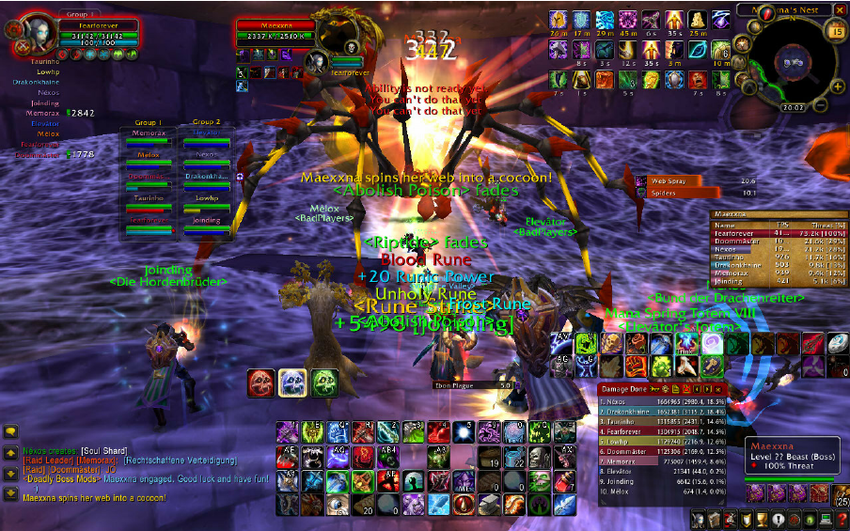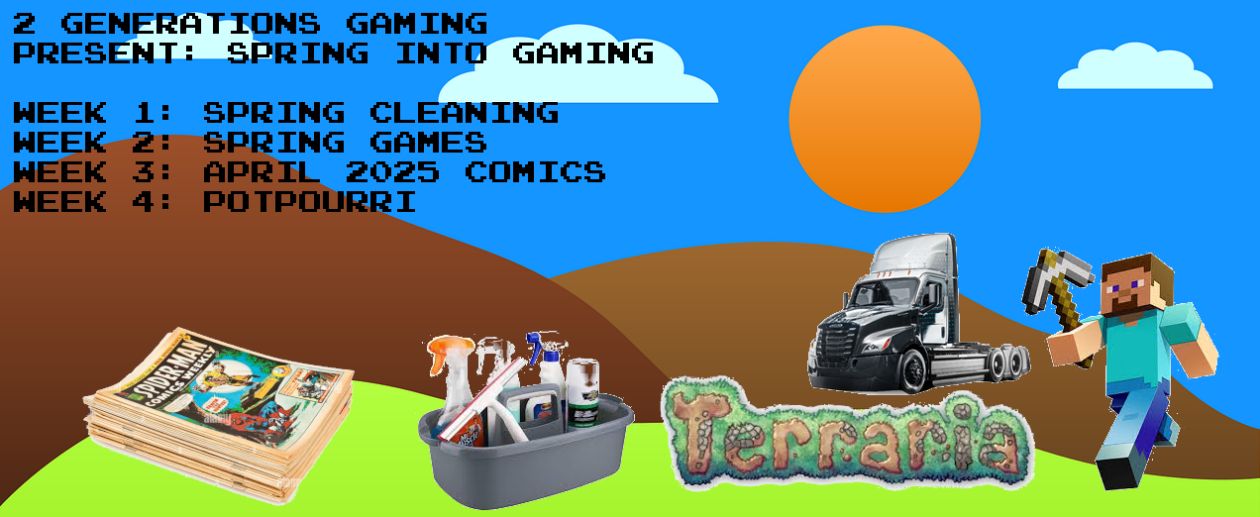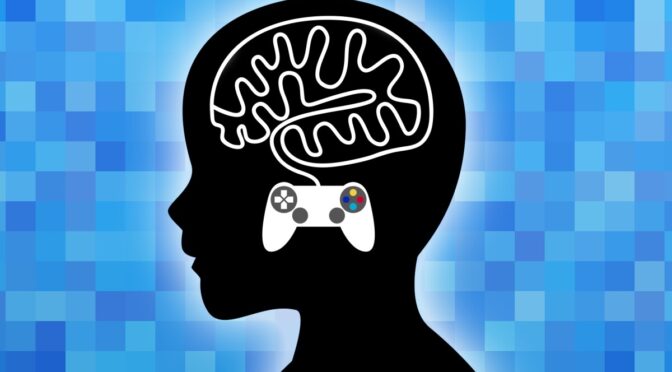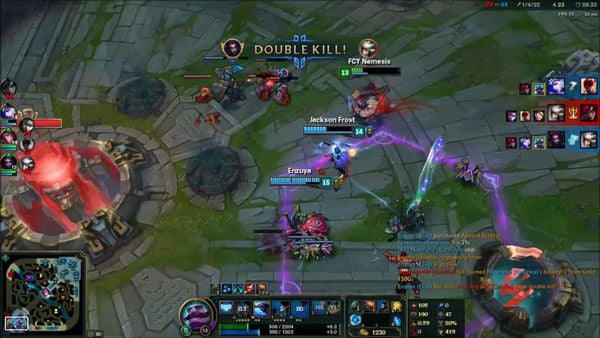Introduction
For as long as I can remember, I played video games. We owned an Atari 2600 when I was a kid, then a 7800. It took my parents some time to get on board and purchase us an NES. Ever since then, nearly every system I owned, I purchased. Many of them got sold or donated to youth programs. But, I keep memories from all of them in my memory and they make me smile. While perhaps not the poster child, I wanted to take some time out from my busy schedule to talk about gaming and mental health.
Bear in mind, in an attempt to remain honest, I want to discuss both the positive and negative impacts of video game. True to myself, though, I hope to give everyone some strategies to maintain a healthy balance and avoid those potential downfalls. I like to start with the bad news and finish with the positives, so bear with me.
The Negative Impacts of Gaming on Mental Health (Addiction)
If you spend any time on this page or my social media, you will hear about my time in World of Warcraft. Even today, as they advertise a new expansion released last month, I consider trying the game again. One of the things that gives me pause is that I fell into the dark place of World of Warcraft addiction. Before that happened, I never considered such a thing possible. Sure, I played games, sometimes obsessively. But, addicted? How do you become addicted to a video game?

It started innocently enough. I learned about mods that made the game more player friendly. Then, I joined a guild that promised a family friendly experience. Suddenly, I found myself playing at all hours of the day to grind for raid night that consumed my life. Eventually, I found a guild via The Instance that allowed me to play the game on my own terms. When I started working 18 hours a day, the game fell into the dust bin of history. I played it some over the last few years, but never picked it up again on a regular basis.
I tell a similar story about the release of Skyrim. At the time, I recently lost my job and it took some time to find another one. I lived on unemployment and stayed at home with my young son, Quinn. As a baby, he slept a lot. So, I purchased Skyrim and started playing. At the end of the first week, I looked at my played stats and saw over 50 hours. I know for some of you, those are rookie numbers. But, I saw that and said, “What am I doing with my life? Spending 50 hours chasing after virtual butterflies?” When they say touch grass, I know exactly what they mean.
The Negative Impacts of Gaming on Mental Health (Toxicity)
While evidence of bullying, antisocial behavior, abusive language, and other toxicity exist in abundance in nerd communities, I only experienced a small amount of it myself. Before moving on to a different topic, when I played WoW, I always fought against these things. A person asks something in general chat? I answered the question. Sexist and racist language? I called it out. Look, I’m not saying these things to paint myself as a hero. I simply thing we need to handle these issues in house and make nerd communities the loving and welcome groups that they should be.
As you may have guessed already, my main negative experience with gamers comes as a result of League of Legends. Intrigued by the game, I logged in and played a few games. In five games played, I found exactly one player willing to work with the newer players and teach instead of hurling invective and rage quitting. Needless to say, I never played another game of League of Legends since.
I know some people make the argument that such an environment breeds strength and weed out the “weak” players. First, if you’re playing in my lobby, I guarantee you aren’t in any way, shape, or form a professional at the game. Therefore, weeding me out of your community just makes one less person in the queue to make your game fire. Second, the whole “alpha, beta” mindset is bullshit. It’s based in a flawed experiment and misread data. So, if you subscribe to that, I automatically assume that you’re not even what you consider to be an “alpha” and I can ignore anything that you say or do.
The Positive Impacts of Gaming on Mental Health (Building Social Connections)
Okay, enough about the negatives. Let’s talk some about the positives. While I have nothing positive to say about League of Legends other than the fact that it spawned a very fun game mode in the form of Teamfight Tactics, I actually still look on my time in World of Warcraft fondly. In addition to providing a great story, I found my people. That guild that I talked about that started family friendly and eventually became corrupted into a more try hard version?
I met people in that guild who I remain in contact with through social media. As time goes on and more and more people decide that they don’t want to be “friends” or “followers” of randos they met in a video game 20 years ago, the number decreases. But, I still consider those that remain friends. I watched their kids grow up just like friends that I see on a regular basis.
Hell, I started this web page and podcast as an attempt to start my own community around gaming. Clearly, that hasn’t worked as intended so far. But, who knows? Maybe one of these days, it will. I finally got some engagement on Instagram and someone reached out about sponsorship on the podcast. So, things are trending in the positive direction. If you like what I do, spread the word!
The Positive Impacts of Gaming on Mental Health (Stress Relief and Building Cognitive Skills)
I present Portal 2 as exhibit A in this section. For some of my life, when it seemed like all I did was work and sleep, I ostensibly played games to relax. In reality, some of the games I played only increased my anxiety and stress. One, in particular, that grew from World of Warcraft, gave me similar feelings. For some reason, maybe the left over damage from the addition, Hearthstone made me unreasonably angry when I played.
It still frustrates me. But, I found a balance with the game that lets me play without the overwhelming anger and dread. Maybe I grew up. Perhaps by removing the other stressors in my life, it allowed me to find more joy in the game. Whatever the reason, I play it on a daily basis to finish quests. I can say the same about Magic the Gathering Arena, too.
Through it all, though, I always picked Portal 2 as my game to relax. I loved the story. The game play was unique and added to that story. Dressed as a an action game, it offered challenging puzzles that made me think. Really, what more can you ask for in a game? Honestly, anything that makes me think and use my brain holds a special place in my heart.
Plus, Liam watched me play the game through one time. As silly as it sounds, that brought us closer together and we still talk about that time and those memories to this day. Also, he and Quinn returned the favor a couple of months ago when I watched them play through Super Mario Wonder. While games don’t represent everything in our family, they definitely play a part.
The Verdict
Like anything, gaming offers both positives and negatives. Gaming addiction is a very real and potentially dangerous thing that can happen to anyone at any time and with any game. Beware of the warning signs in yourself and others. Don’t be afraid to have those difficult conversations with the ones you love. They’ll insist that there’s no problem and there might not be. But, as always, better safe than sorry.
They key is recognizing the negative effects and attempting to reduce them while finding games and communities that accentuate the positives. If you ever find yourself in a position where you need a positive influence, consider us as a possibility. No matter what, though, take care of yourselves and each other. Just follow the golden rule of gaming. “Good Luck and Have Fun.”
If you or someone you know needs more help, check out the following links: Take This – an organization that helps reduce the stigma behind mental health issues in the gaming community, National Alliance on Mental Illness – the leading advocate group for bringing mental health to the forefront and helping people deal with their own and their loved ones mental health. There are also many apps that deal with improving your own mental health through diet, exercise, and meditation. Find one that works for you.


